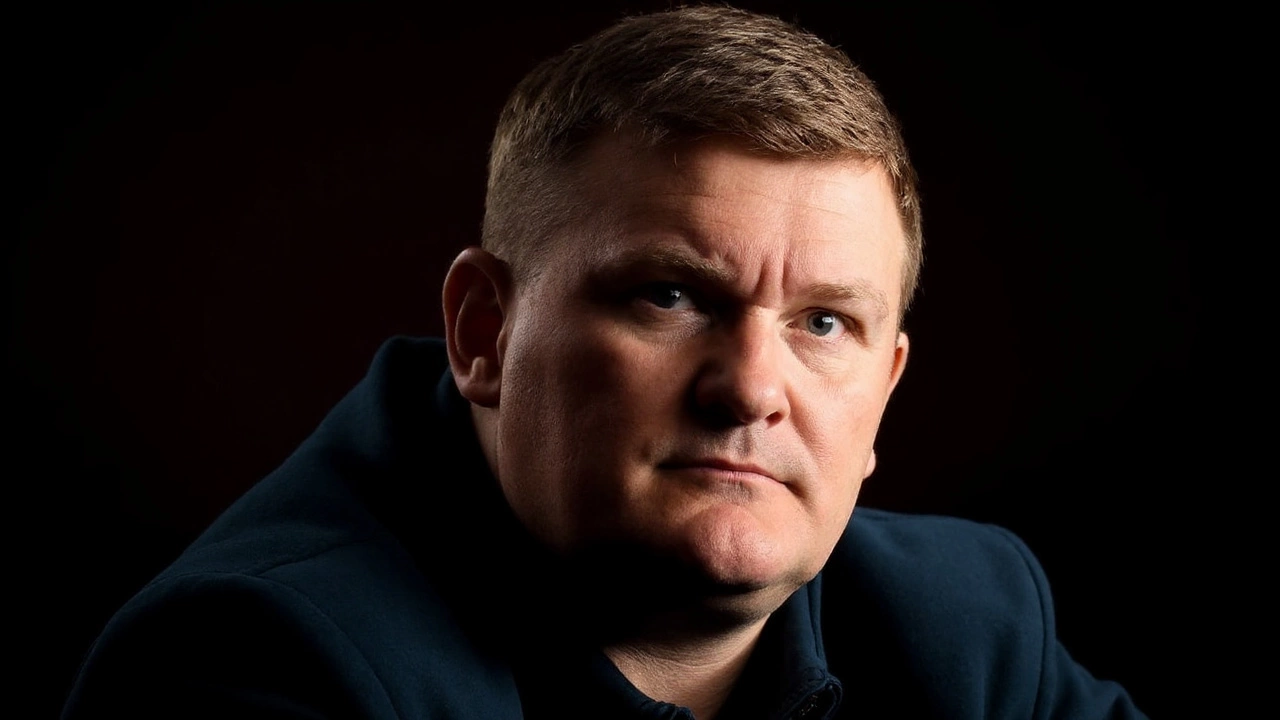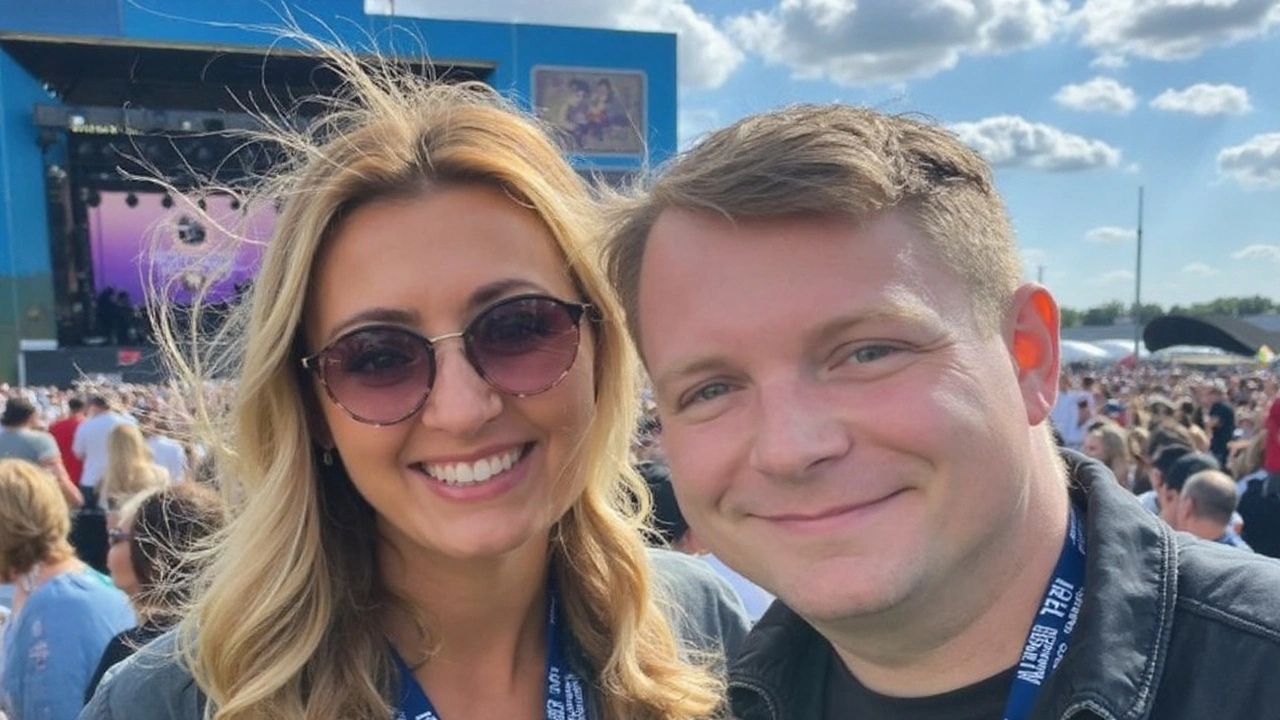A public love life shaped by fame
Few British fighters drew bigger crowds than Ricky Hatton. And few had a personal life that spilled into headlines quite as often. As his career took him from Manchester arenas to sold‑out nights in Las Vegas, the stories about who he was dating sometimes felt as loud as the roar on fight night.
One of the most talked‑about chapters was his relationship with actress and TV personality Claire Sweeney. A familiar face from British television and the stage — and more recently a cast member on Coronation Street — Sweeney brought red‑carpet polish to Hatton’s world of early runs, tough sparring, and fight week pressure. The pairing was easy tabloid fodder: a homegrown champion with a showbiz star. Photos from events and candid shots outside venues kept them in the celebrity columns, whether they wanted it or not.
But fame doesn’t cushion everything. The engagement that followed a later relationship became a turning point — and not a gentle one. People around the camp called the break‑up “brutal,” the kind of split that doesn’t end at the front door. When a relationship collapses in public, the fallout sticks: whispers on message boards, a camera waiting at the gym door, the same question again and again. For a fighter who built his game on composure, it was the kind of noise that seeps into quiet moments and stays there.
To understand why these moments hit so hard, you have to look at the calendar of a top boxer. Training camps mean weeks away from home, dawn roadwork, and a diet that makes dinners out rare. Fight week is a pressure cooker, followed by either a parade or a post‑fight inquest. Relationships are asked to bend around that schedule. Some partners ride the highs — the ticket rush, the anthem, the hand raised — and help steady the lows. Others arrive in the storm and get swept into it. Hatton lived both versions.
Those close to him describe a pattern: big nights, big scrutiny, then the off‑season stretch where normal life is supposed to return. But “normal” isn’t normal when your face is on back pages and gossip pages. Even a quiet dinner can become content for someone’s feed. That churn made the tender parts of his life — commitment, trust, conflict — feel exposed and sped up. When the engagement cracked, it did more than break a plan; it amplified every old scar.
Hatton has never hidden from the harder subjects. He has spoken candidly over the years about depression, about using alcohol as a crutch, and about the way shame can spiral when you feel you’re letting people down. In boxing, you learn to mask pain to survive a round. In life, that instinct can backfire. Romantic troubles and mental health struggles fed each other for a while, making recovery messy and public. It wasn’t a neat arc. It rarely is.

Mental health, fatherhood, and a quieter second act
Fatherhood changed the conversation. Hatton has children from previous relationships, and becoming a dad reset his priorities. Friends say time with his kids forced him to slow down and think longer term — about what kind of partner he wanted to be, and what kind of partner he needed. Co‑parenting also meant learning to keep boundaries, communicate better, and avoid letting public drama touch private routines. That’s unglamorous work, but it’s the work that lasts.
It also reframed his dating life. Instead of leaning into the buzz that comes with a high‑profile romance, he began to favor low‑key. Fewer premieres. More quiet nights. Less of the social media breadcrumb trail that lets strangers map your week. People close to him talk about a checklist that’s changed: trust over attention, steady over exciting, private over photogenic. After years of living in the fast lane, the speed limit started to look appealing.
None of this means the old spotlight disappeared. Hatton is still a national figure — a former world champion whose name can sell out a room and whose opinions on big fights still move debate. When he appears at events, the questions about his personal life follow. But the answers have shortened. The circles have tightened. The lessons from the public break‑ups stuck.
There’s also the more practical shift: a move from fighting to mentoring. After retirement, Hatton poured time into the gym, into training and advising, and into the rhythm of routine. One part of that routine is staying healthy — mentally and physically — without the artificial peaks and crashes of fight camp. It’s easier to build a relationship when your life no longer swings between extreme isolation and adrenaline spikes.
It’s worth saying out loud how unusual his era was. Hatton peaked as British tabloids were at full force and social media was gathering steam. Private moments escaped the room faster than ever. For athletes, that meant a small mistake could turn into a headline by lunch and a punchline by dinner. The pressure didn’t just rest on performance; it wrapped around the person. In that climate, even ordinary relationship problems became stories, and stories became burdens.
Through all of it, his standing with fans endured. Hatton’s bond with the British public was built on honesty — the everyman charm, the self‑deprecation, the willingness to admit when life gets messy. Owning the missteps, talking about mental health, and acknowledging the pain around a failed engagement made him relatable in a way stats never could. It didn’t erase the hurt, but it did give people a fuller picture of the man who once walked out in a blue Manchester City shirt and made arenas sing.
As for the headline‑grabbing romances, they’re part of the story but not the ending. The Claire Sweeney chapter showed how easily sport and entertainment collide. The engagement that ended painfully showed how public life can make private grief heavier. The years since have been about editing the cast list and reducing the noise.
Today, the approach is simple: keep the circle small, choose partners who want the person, not the poster, and let the relationship grow off‑camera. The aim isn’t to erase the past; it’s to use it. If the early years were about chasing glory and absorbing the hits that came with it, the new phase is about stability — the kind that doesn’t trend, doesn’t get papped, and doesn’t need applause.
That’s not a fairy tale. It’s steadier, quieter, and, by design, less newsworthy. For someone who lived his twenties and thirties at top volume, that might be the point. The public will always be curious — it comes with the belts and the memories. But for the man at the center of it, romance now looks less like a headline and more like a home.
There’s a lesson baked into that shift for any athlete stepping out of prime time. The big nights end. The cameras move on. What stays is the life you build when the crowds go home: the routines, the people who show up, and the relationships that don’t need everyone else to know they exist. For Ricky Hatton, that’s the real new beginning.
